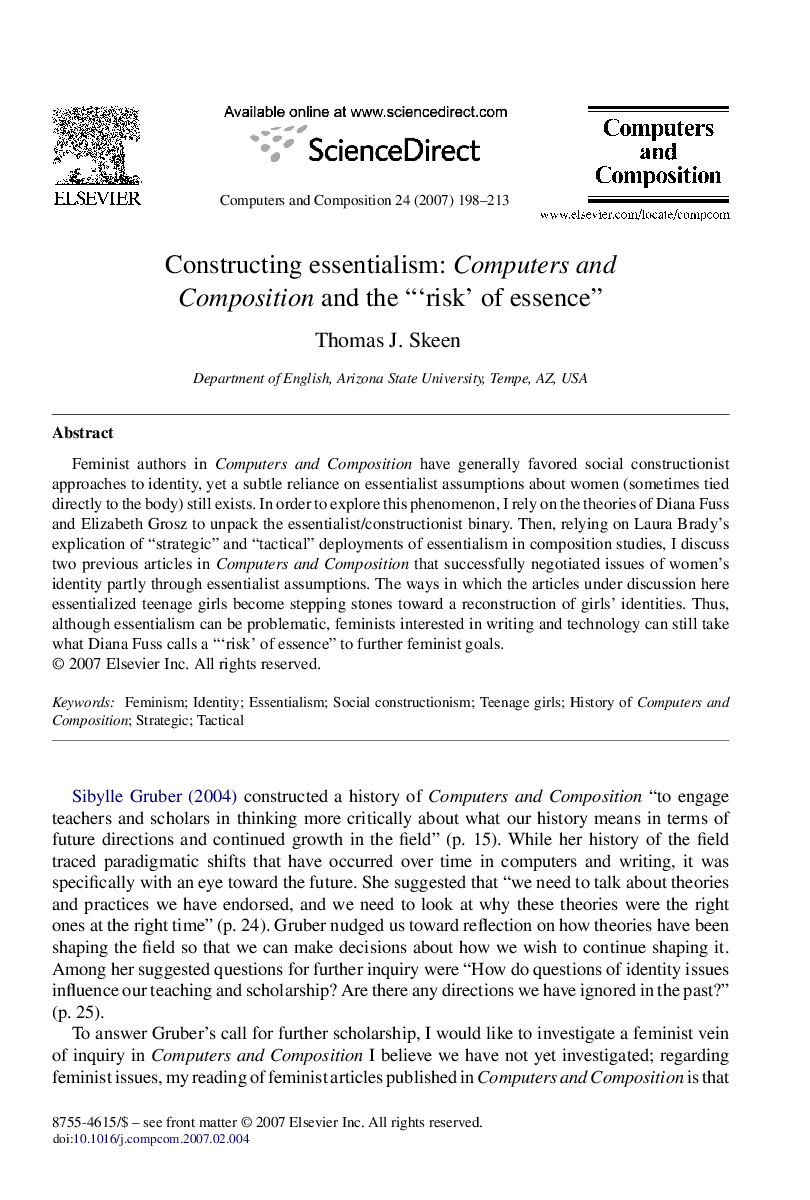| Article ID | Journal | Published Year | Pages | File Type |
|---|---|---|---|---|
| 348020 | Computers and Composition | 2007 | 16 Pages |
Feminist authors in Computers and Composition have generally favored social constructionist approaches to identity, yet a subtle reliance on essentialist assumptions about women (sometimes tied directly to the body) still exists. In order to explore this phenomenon, I rely on the theories of Diana Fuss and Elizabeth Grosz to unpack the essentialist/constructionist binary. Then, relying on Laura Brady's explication of “strategic” and “tactical” deployments of essentialism in composition studies, I discuss two previous articles in Computers and Composition that successfully negotiated issues of women's identity partly through essentialist assumptions. The ways in which the articles under discussion here essentialized teenage girls become stepping stones toward a reconstruction of girls’ identities. Thus, although essentialism can be problematic, feminists interested in writing and technology can still take what Diana Fuss calls a “‘risk’ of essence” to further feminist goals.
